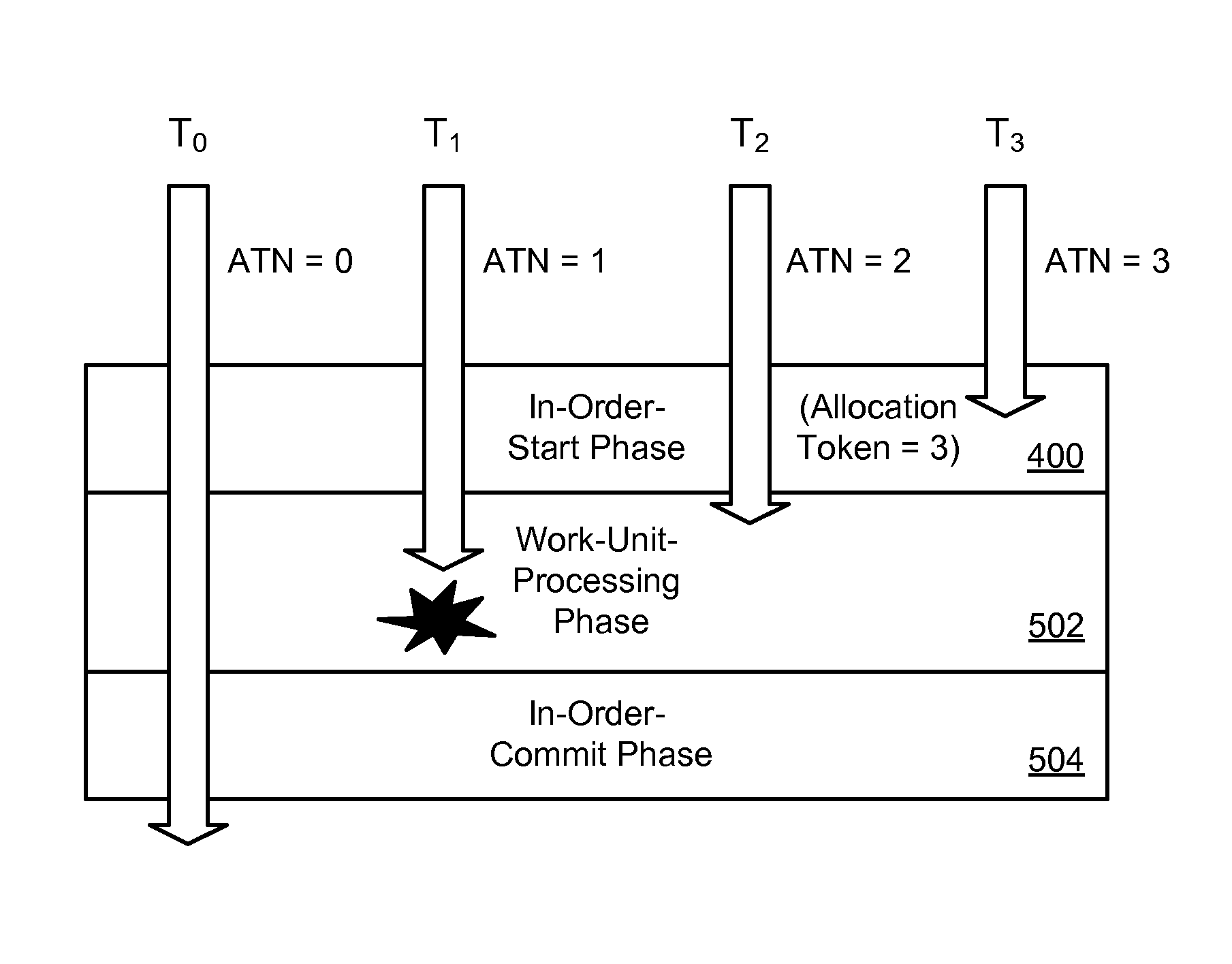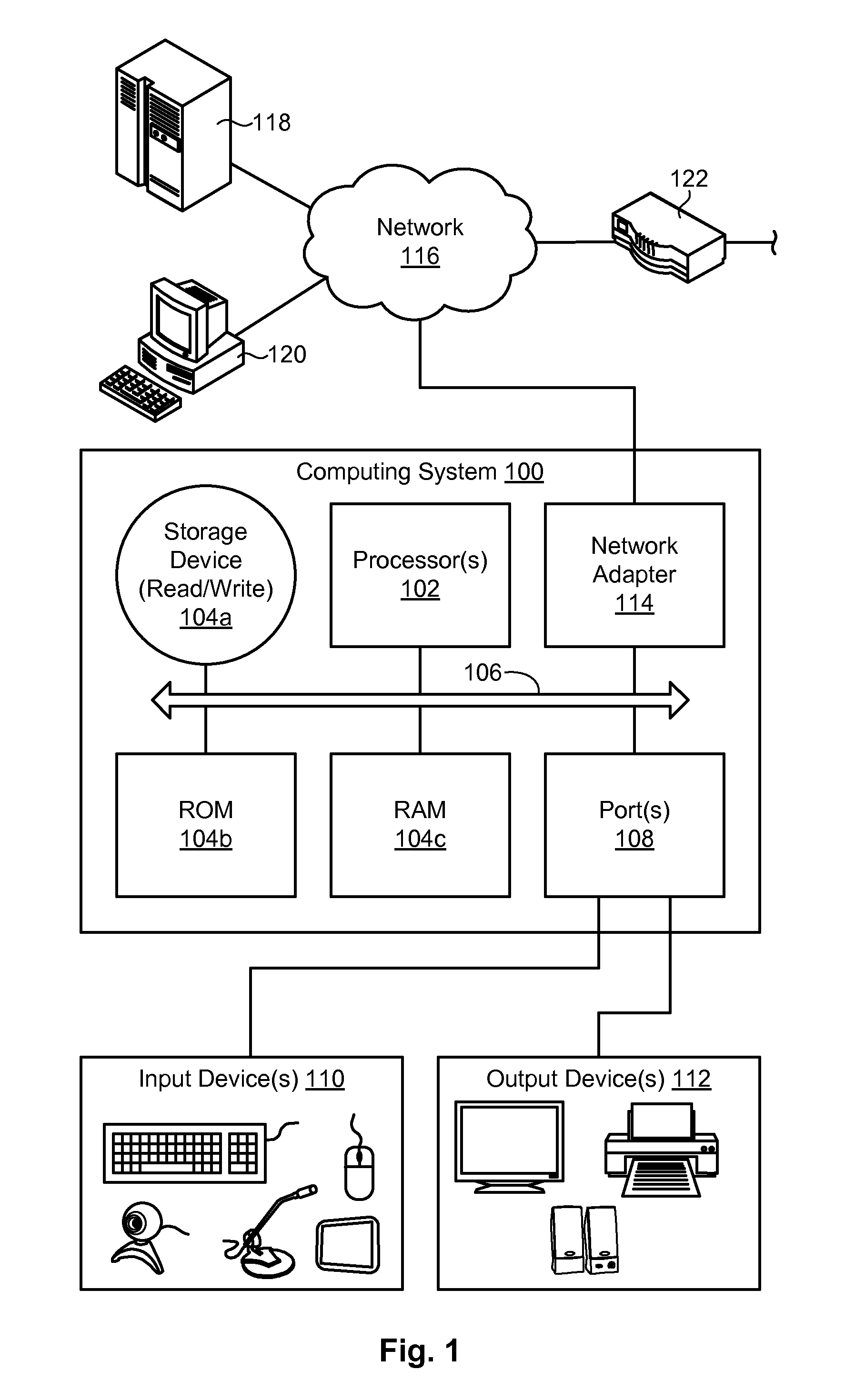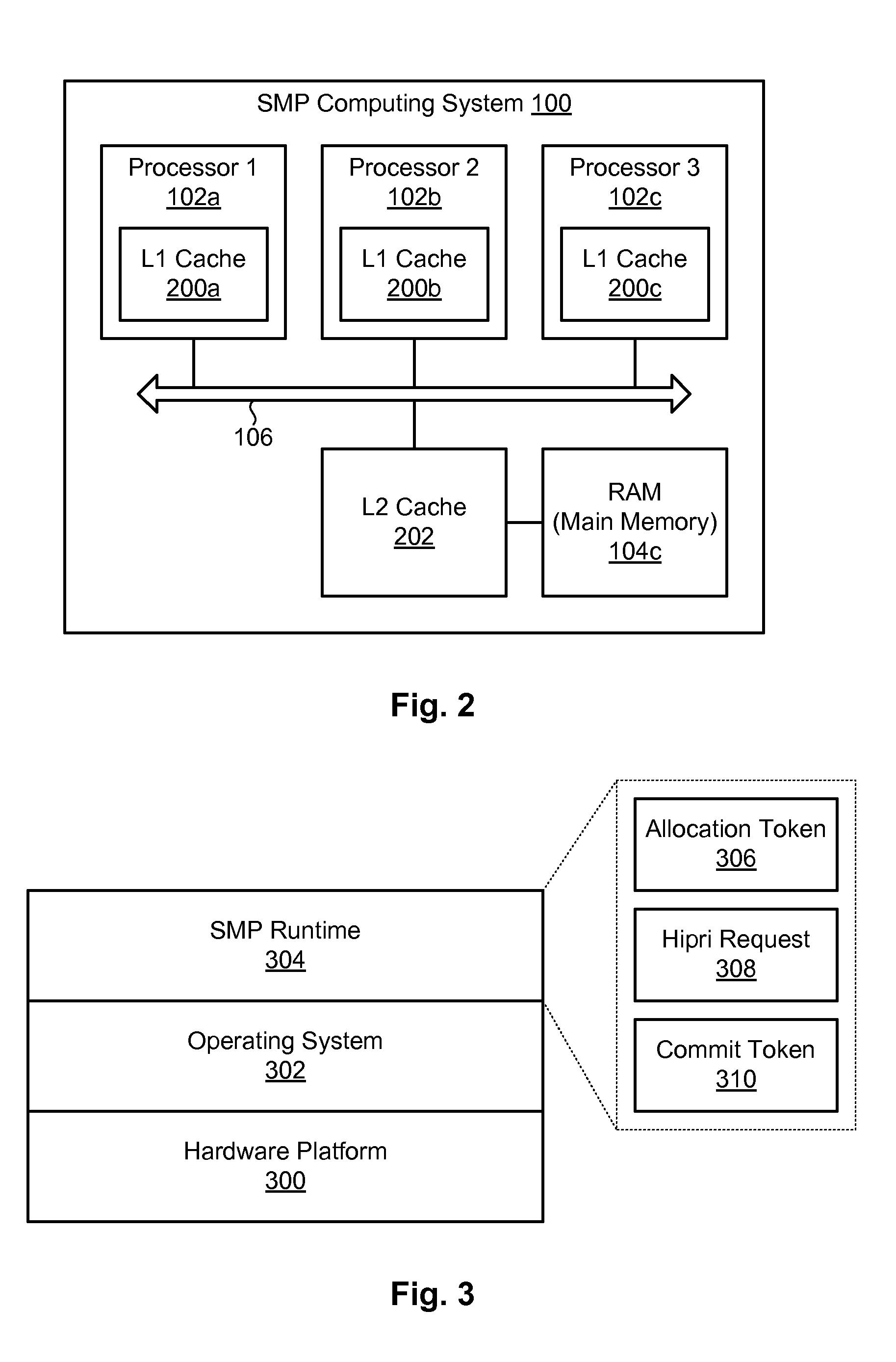Efficient rollback and retry of conflicted speculative threads using distributed tokens
a technology of distributed tokens and speculative threads, applied in the field of efficient rollback and retry of conflicted speculative threads, can solve the problems of inefficient and difficult debugging of current smp systems for speculative execution, design both inefficient and difficult to debug, and achieve the effect of efficient rollback of speculative threads
- Summary
- Abstract
- Description
- Claims
- Application Information
AI Technical Summary
Benefits of technology
Problems solved by technology
Method used
Image
Examples
Embodiment Construction
[0021]It will be readily understood that the components of the present invention, as generally described and illustrated in the Figures herein, could be arranged and designed in a wide variety of different configurations. Thus, the following more detailed description of the embodiments of the invention, as represented in the Figures, is not intended to limit the scope of the invention, as claimed, but is merely representative of certain examples of presently contemplated embodiments in accordance with the invention. The presently described embodiments will be best understood by reference to the drawings, wherein like parts are designated by like numerals throughout.
[0022]As will be appreciated by one skilled in the art, the present invention may be embodied as an apparatus, system, method, or computer program product. Furthermore, the present invention may take the form of a hardware embodiment, a software embodiment (including firmware, resident software, microcode, etc.) configure...
PUM
 Login to View More
Login to View More Abstract
Description
Claims
Application Information
 Login to View More
Login to View More - R&D
- Intellectual Property
- Life Sciences
- Materials
- Tech Scout
- Unparalleled Data Quality
- Higher Quality Content
- 60% Fewer Hallucinations
Browse by: Latest US Patents, China's latest patents, Technical Efficacy Thesaurus, Application Domain, Technology Topic, Popular Technical Reports.
© 2025 PatSnap. All rights reserved.Legal|Privacy policy|Modern Slavery Act Transparency Statement|Sitemap|About US| Contact US: help@patsnap.com



